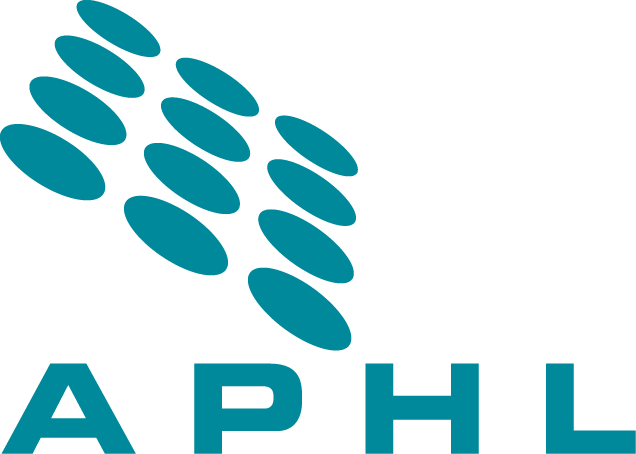Your trusted partner for high quality, secure, cloud-based, public health data solutions

Your trusted partner for high quality, secure, cloud-based, public health data solutions


Datapult: Solving the problem of ELR and NGS
Datapult makes it much less expensive and difficult to securely manage data operations. The problems we solve are entrenched and complex: Transporting and reporting data to multiple jurisdictions, in near real-time, complying with every cross-jurisdictional rule, with siloed and outdated reporting systems.
This is where we can help. Datapult strives to minimize data quality gaps, enabling our clients to be more efficient, collaborative, and effective leaders in public health.


Datapult: Solving the problem of ELR and NGS
Datapult makes it much less expensive and difficult to securely manage data operations. The problems we solve are entrenched and complex: Transporting and reporting data to multiple jurisdictions, in near real-time, complying with every cross-jurisdictional rule, with siloed and outdated reporting systems.
This is where we can help. Datapult strives to minimize data quality gaps, enabling our clients to be more efficient, collaborative, and effective leaders in public health.
Take advantage of AIMS:
Cloud-enabled interoperability
AIMS is the cloud-based platform for streamlined public health communication. It connects to every public health agency and public health laboratory in the nation. That’s all 50 states, the District of Columbia, several large cities, several counties, and US Territories.
Accurate, real-time electronic health data exchange is now available to the sprawling, diverse community that makes up the “missing half” of public health’s data reservoir. This includes independent clinical labs, commercial testing facilities, K–12 schools, university research labs, and even at-home test providers—anyone operating within public health but outside the U.S. public health laboratory system.


Let our experts save you
time and money
Because our customers are incredibly diverse, we support their needs with expertise that is just as varied. We bring a wealth of experience in public health, information technology, clinical laboratory, electronic laboratory reporting, and next-generation genomic sequencing to make sure you get exactly what you need.
Like the AIMS platform itself, we are public health professionals devoted to the data needs of the public health system, because the true value of public health data is in its usefulness.
An APHL solution
Long before COVID‑19, APHL identified the need to extend the AIMS platform to non-governmental reporters at the national, state, and local level to complete the public health data picture and eliminate the problem of duplicative reporting workflows.
By 2020, the COVID-19 crisis made the integration of non-government partners imperative.
In 2021, Datapult became a wholly owned subsidiary of APHL*. We may have a different name and logo, now (formerly AIMS+), but the public health mission, nonprofit principles, technology, expertise, people, and connections we share with APHL bring out our respective best. We are always and forever of public health and for public health.


Collaborative solutions:
Unlocking success together
At our core, we believe that partnering is the key to achieving streamlined solutions. Our alliance with APHL was our first partnership and will always be the most important.
We are also proud to have worked closely with Seqera and the U.S. Department of Health to develop NGS InSight, a groundbreaking innovation already making a difference, and with the U.S. Department of Health & Human Services on RADx® MARS, bringing the all-important at-home COVID-19 test results into ELR reporting.


The Association of Public Health Laboratories
Founded in 1951, the Association of Public Health Laboratories (APHL) is a nonprofit organization* working to safeguard public health by strengthening government public health labs in the U.S. and globally.
APHL members are state and local governmental health labs that monitor and detect public health threats; this includes public health, agricultural, environmental, and related labs.
APHL is a recognized leader in laboratory science, practice, and policy. It supports member labs with guidance, high-quality training, national policymaking, leadership development, crisis response, and information management system expertise, among others. Its expert staff covers diverse disciplines like infectious disease, environmental health, and food safety.
Originally formed as a collaboration platform for state health lab directors, APHL has expanded over time to include local health labs and state environmental, agricultural, and food safety labs. Its 1,600+ members also include federal officials, corporate partners, and students.
APHL has comprehensive programmatic support in areas such as environmental health, food safety, global health, infectious diseases, newborn screening and genetics, public health preparedness and response, and quality systems and analytics. Importantly, APHL members gain access to its AIMS platform.
Extending AIMS to private diagnostic laboratory reporters through Datapult is an example of APHL’s farsighted vision. It identified and met the need for secure and actionable data sharing across the healthcare ecosystem in ample time to support the CDC’s current Data Modernization Initiative (DMI) and PHDS-TF-2021_Recommendation 25, a core infrastructure policy recommendation to use AIMS to bridge the interoperability gap.**
**PHDS-TF-2021_Recommendation 25—ONC should work with CDC, STLTs, HIEs, the TEFCA RCE, and healthcare providers to continue the utilization and expansion of PH gateways building upon experience developed implementing portal services such as the APHL AIMS Platform for eCR and ELR to avoid duplicative reporting workflows for providers

The Association of Public Health Laboratories
Founded in 1951, the Association of Public Health Laboratories (APHL) is a nonprofit organization* working to safeguard public health by strengthening government public health labs in the U.S. and globally.
APHL members are state and local governmental health labs that monitor and detect public health threats; this includes public health, agricultural, environmental, and related labs.
APHL is a recognized leader in laboratory science, practice, and policy. It supports member labs with guidance, high-quality training, national policymaking, leadership development, crisis response, and information management system expertise, among others. Its expert staff covers diverse disciplines like infectious disease, environmental health, and food safety.
Originally formed as a collaboration platform for state health lab directors, APHL has expanded over time to include local health labs and state environmental, agricultural, and food safety labs. Its 1,600+ members also include federal officials, corporate partners, and students.
APHL has comprehensive programmatic support in areas such as environmental health, food safety, global health, infectious diseases, newborn screening and genetics, public health preparedness and response, and quality systems and analytics. Importantly, APHL members gain access to its AIMS platform.
Extending AIMS to private diagnostic laboratory reporters through Datapult is an example of APHL’s farsighted vision. It identified and met the need for secure and actionable data sharing across the healthcare ecosystem in ample time to support the CDC’s current Data Modernization Initiative (DMI) and PHDS-TF-2021_Recommendation 25, a core infrastructure policy recommendation to use AIMS to bridge the interoperability gap.**
**PHDS-TF-2021_Recommendation 25—ONC should work with CDC, STLTs, HIEs, the TEFCA RCE, and healthcare providers to continue the utilization and expansion of PH gateways building upon experience developed implementing portal services such as the APHL AIMS Platform for eCR and ELR to avoid duplicative reporting workflows for providers
**PHDS-TF-2021_Recommendation 25—ONC should work with CDC, STLTs, HIEs, the TEFCA RCE, and healthcare providers to continue the utilization and expansion of PH gateways building upon experience developed implementing portal services such as the APHL AIMS Platform for eCR and ELR to avoid duplicative reporting workflows for providers


Datapult: Solving the problem of ELR and NGS
Datapult makes it much less expensive and difficult to securely manage data operations. The problems we solve are entrenched and complex: Transporting and reporting data to multiple jurisdictions, in near real-time, complying with every cross-jurisdictional rule, with siloed and outdated reporting systems.
This is where we can help. Datapult strives to minimize data quality gaps, enabling our clients to be more efficient, collaborative, and effective leaders in public health.


Datapult: Solving the problem of ELR and NGS
Datapult makes it much less expensive and difficult to securely manage data operations. The problems we solve are entrenched and complex: Transporting and reporting data to multiple jurisdictions, in near real-time, complying with every cross-jurisdictional rule, with siloed and outdated reporting systems.
This is where we can help. Datapult strives to minimize data quality gaps, enabling our clients to be more efficient, collaborative, and effective leaders in public health.
Take advantage of AIMS:
Cloud-enabled interoperability
AIMS is the cloud-based platform for streamlined public health communication. It connects to every public health agency and public health laboratory in the nation. That’s all 50 states, the District of Columbia, several large cities, several counties, and US Territories.
Accurate, real-time electronic health data exchange is now available to the sprawling, diverse community that makes up the “missing half” of public health’s data reservoir. This includes independent clinical labs, commercial testing facilities, K–12 schools, university research labs, and even at-home test providers—anyone operating within public health but outside the U.S. public health laboratory system.


Let our experts save you
time and money
Because our customers are incredibly diverse, we support their needs with expertise that is just as varied. We bring a wealth of experience in public health, information technology, clinical laboratory, electronic laboratory reporting, and next-generation genomic sequencing to make sure you get exactly what you need.
Like the AIMS platform itself, we are public health professionals devoted to the data needs of the public health system, because the true value of public health data is in its usefulness.
An APHL solution
Long before COVID‑19, APHL identified the need to extend the AIMS platform to non-governmental reporters at the national, state, and local level to complete the public health data picture and eliminate the problem of duplicative reporting workflows.
By 2020, the COVID-19 crisis made the integration of non-government partners imperative.
In 2021, Datapult became a wholly owned subsidiary of APHL*. We may have a different name and logo, now (formerly AIMS+), but the public health mission, nonprofit principles, technology, expertise, people, and connections we share with APHL bring out our respective best. We are always and forever of public health and for public health.


Collaborative solutions:
Unlocking success together
At our core, we believe that partnering is the key to achieving streamlined solutions. Our alliance with APHL was our first partnership and will always be the most important.
We are also proud to have worked closely with Seqera and the U.S. Department of Health to develop NGS InSight, a groundbreaking innovation already making a difference, and with the U.S. Department of Health & Human Services on RADx® MARS, bringing the all-important at-home COVID-19 test results into ELR reporting.


The Association of Public Health Laboratories
Founded in 1951, the Association of Public Health Laboratories (APHL) is a nonprofit organization* working to safeguard public health by strengthening government public health labs in the U.S. and globally.
APHL members are state and local governmental health labs that monitor and detect public health threats; this includes public health, agricultural, environmental, and related labs.
APHL is a recognized leader in laboratory science, practice, and policy. It supports member labs with guidance, high-quality training, national policymaking, leadership development, crisis response, and information management system expertise, among others. Its expert staff covers diverse disciplines like infectious disease, environmental health, and food safety.
Originally formed as a collaboration platform for state health lab directors, APHL has expanded over time to include local health labs and state environmental, agricultural, and food safety labs. Its 1,600+ members also include federal officials, corporate partners, and students.
APHL has comprehensive programmatic support in areas such as environmental health, food safety, global health, infectious diseases, newborn screening and genetics, public health preparedness and response, and quality systems and analytics. Importantly, APHL members gain access to its AIMS platform.
Extending AIMS to private diagnostic laboratory reporters through Datapult is an example of APHL’s farsighted vision. It identified and met the need for secure and actionable data sharing across the healthcare ecosystem in ample time to support the CDC’s current Data Modernization Initiative (DMI) and PHDS-TF-2021_Recommendation 25, a core infrastructure policy recommendation to use AIMS to bridge the interoperability gap.**
**PHDS-TF-2021_Recommendation 25—ONC should work with CDC, STLTs, HIEs, the TEFCA RCE, and healthcare providers to continue the utilization and expansion of PH gateways building upon experience developed implementing portal services such as the APHL AIMS Platform for eCR and ELR to avoid duplicative reporting workflows for providers

The Association of Public Health Laboratories
Founded in 1951, the Association of Public Health Laboratories (APHL) is a nonprofit organization* working to safeguard public health by strengthening government public health labs in the U.S. and globally.
APHL members are state and local governmental health labs that monitor and detect public health threats; this includes public health, agricultural, environmental, and related labs.
APHL is a recognized leader in laboratory science, practice, and policy. It supports member labs with guidance, high-quality training, national policymaking, leadership development, crisis response, and information management system expertise, among others. Its expert staff covers diverse disciplines like infectious disease, environmental health, and food safety.
Originally formed as a collaboration platform for state health lab directors, APHL has expanded over time to include local health labs and state environmental, agricultural, and food safety labs. Its 1,600+ members also include federal officials, corporate partners, and students.
APHL has comprehensive programmatic support in areas such as environmental health, food safety, global health, infectious diseases, newborn screening and genetics, public health preparedness and response, and quality systems and analytics. Importantly, APHL members gain access to its AIMS platform.
Extending AIMS to private diagnostic laboratory reporters through Datapult is an example of APHL’s farsighted vision. It identified and met the need for secure and actionable data sharing across the healthcare ecosystem in ample time to support the CDC’s current Data Modernization Initiative (DMI) and PHDS-TF-2021_Recommendation 25, a core infrastructure policy recommendation to use AIMS to bridge the interoperability gap.**
**PHDS-TF-2021_Recommendation 25—ONC should work with CDC, STLTs, HIEs, the TEFCA RCE, and healthcare providers to continue the utilization and expansion of PH gateways building upon experience developed implementing portal services such as the APHL AIMS Platform for eCR and ELR to avoid duplicative reporting workflows for providers
**PHDS-TF-2021_Recommendation 25—ONC should work with CDC, STLTs, HIEs, the TEFCA RCE, and healthcare providers to continue the utilization and expansion of PH gateways building upon experience developed implementing portal services such as the APHL AIMS Platform for eCR and ELR to avoid duplicative reporting workflows for providers

Have a partnering idea?
Collaboration is what makes the impossible possible. Let's discuss your goals and strategies to protect public health from emerging threats utilizing data.